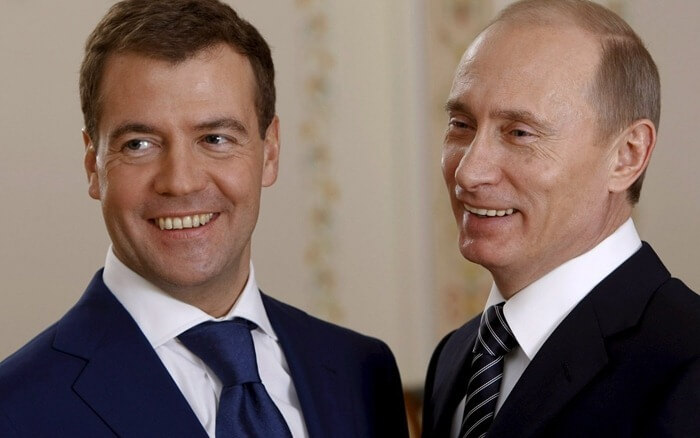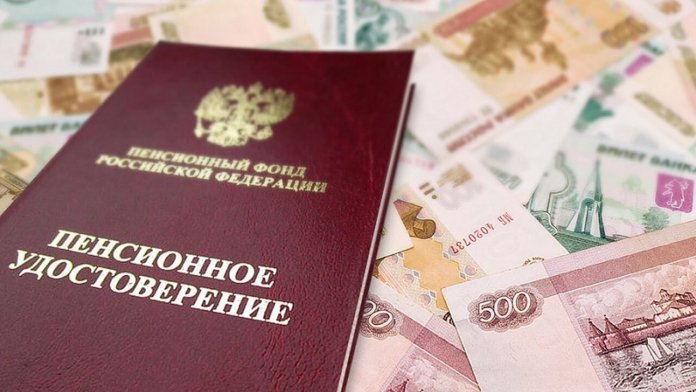The decision on pension reform, timed by the government under the leadership of Dmitry Medvedev exactly for the 2018 World Cup, generated discontent and controversy in society. We will not assess whether it is good or bad to raise the retirement age in Russia. Instead, consider the five main risks that pension reform entails.
You will be surprised:
5. Political risk
 Decisions like raising the retirement threshold lead to decreased trust in government and the increasing popularity of the opposition.
Decisions like raising the retirement threshold lead to decreased trust in government and the increasing popularity of the opposition.
Well-known Russian opposition leader Alexei Navalny has already announced protests against this reform in 20 Russian cities. And, judging by the comments on major Russian Internet portals, such as YaPlakal, even those people who did not support Navalny before are going to take these actions.
4. Demographic risk
 People of retirement age who are ready to sit with their grandson or granddaughter provide invaluable assistance to a family with a small child. And when planning a pregnancy, many parents-to-be take into account whether grandparents can help take care of the baby until it is time to take him to kindergarten.
People of retirement age who are ready to sit with their grandson or granddaughter provide invaluable assistance to a family with a small child. And when planning a pregnancy, many parents-to-be take into account whether grandparents can help take care of the baby until it is time to take him to kindergarten.
If the retirement age is raised to 65 for men and 63 for women, then older people will have to work, instead of babysitting grandchildren. Are there many among Russian families of those who can afford to hire a nanny for a baby if the need arises?
3. Reputation risk
 Despite the fact that the authorities in every possible way "take" Vladimir Putin out of the blow of political responsibility, many remember his promise made in 2005: "As long as I am president, such a decision (raising the retirement age) will not be made!" This will inevitably negatively affect the rating of the head of state, not to mention the so low rating of the prime minister.
Despite the fact that the authorities in every possible way "take" Vladimir Putin out of the blow of political responsibility, many remember his promise made in 2005: "As long as I am president, such a decision (raising the retirement age) will not be made!" This will inevitably negatively affect the rating of the head of state, not to mention the so low rating of the prime minister.
According to FOM, Putin's rating has dropped by 2% over the past two weeks, to 62% (as of June 10, 2018). And Medvedev's trust rating is 33%.
Press Secretary of the President of the Russian Federation Dmitry Peskov said that Putin does not take part in the discussion of the bill, although it is following the development of events.
2. Social risk
 One of the main risks of the 2018 pension reform is that it could lead to a “slipping” of social lifts. If an elderly employee will hold this or that position for a very long time, then the young employee will naturally not receive this position. This can lead to delayed career growth, increased tensions in the team and conflicts between people of different ages.
One of the main risks of the 2018 pension reform is that it could lead to a “slipping” of social lifts. If an elderly employee will hold this or that position for a very long time, then the young employee will naturally not receive this position. This can lead to delayed career growth, increased tensions in the team and conflicts between people of different ages.
The fact that the retirement age is not planned to be raised for the “privileged categories” of citizens - primarily servicemen and representatives of power structures - does not cause approval in society. At least for now.
1. Risk of employment for older people
 Now in Russia it is just there is no normal labor market for citizens over 50... And this means that in the future there will be a large number of low-skilled labor force - watchmen, cleaners, kiosk workers, etc.And not because people do not have knowledge, but because they will not be taken anywhere else due to age discrimination.
Now in Russia it is just there is no normal labor market for citizens over 50... And this means that in the future there will be a large number of low-skilled labor force - watchmen, cleaners, kiosk workers, etc.And not because people do not have knowledge, but because they will not be taken anywhere else due to age discrimination.
If a working pensioner can afford to “dump” his salary, since he has a pension, then an elderly person who has found himself out of work, but still does not receive an old-age pension, will find himself in complete poverty and will be ready to work for a penny and without any social guarantees. just to survive.
In addition, unemployed people who find a job at the labor exchange will have to pay benefits. Whether the budget will be able to save on pensions in the future by paying a large number of unemployment benefits is an open question.
The ministers believe that the society will not experience a shock from the pension reform. And for this, it is planned to do everything step by step - from 2019 to 2034. So, men born in 1959 and women born in 1964 will retire in 2020, reaching 61 and 56 years old, respectively.
Retirement table since 2019
| Year of birth | Retirement year | Retirement age | |
|---|---|---|---|
| Men | |||
| 1959 | 2020 | 61 | |
| 1960 | 2022 | 62 | |
| 1961 | 2024 | 63 | |
| 1962 | 2026 | 64 | |
| 1963 | 2028 | 65 | |
| Women | |||
| 1964 | 2020 | 56 | |
| 1965 | 2022 | 57 | |
| 1966 | 2024 | 58 | |
| 1967 | 2026 | 59 | |
| 1968 | 2028 | 60 | |
| 1969 | 2030 | 61 | |
| 1970 | 2032 | 62 | |
| 1971 | 2034 | 63 |
Let us recall that at present the retirement age is 60 and 55 years for men and women, respectively.
Perhaps the pension threshold will be a little "knocked off", but the fact that the bill will be adopted by the State Duma is almost beyond doubt.
The law is expected to come into force on January 1, 2019.

